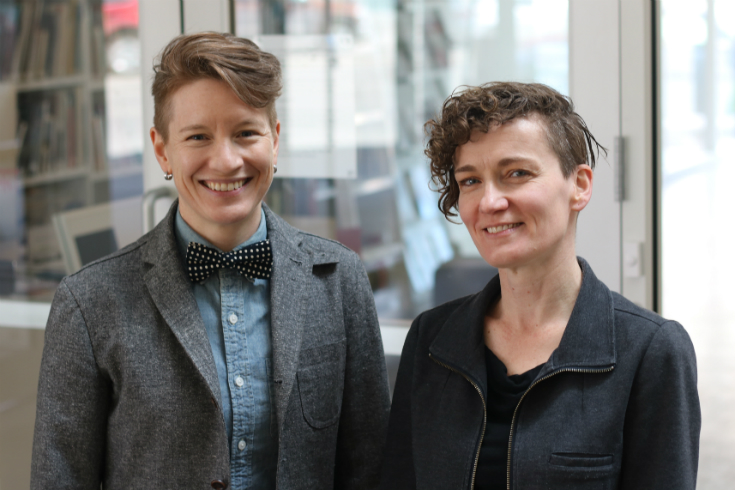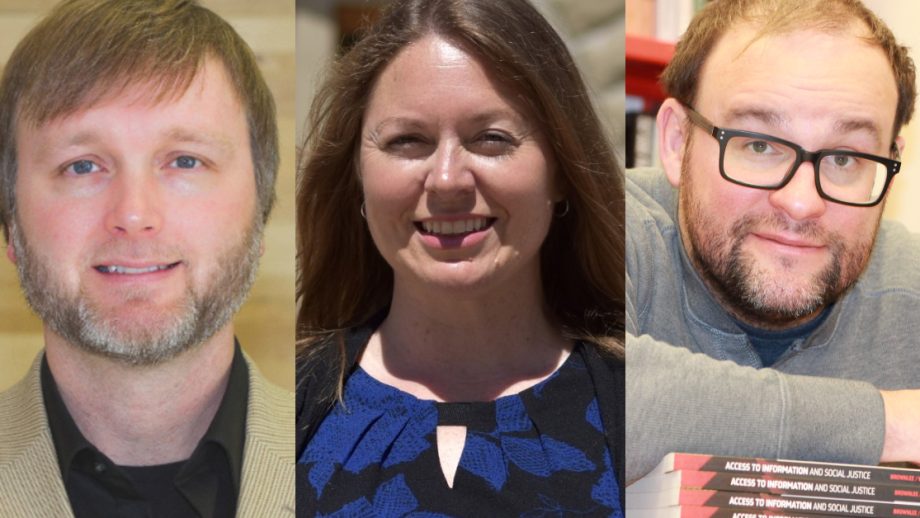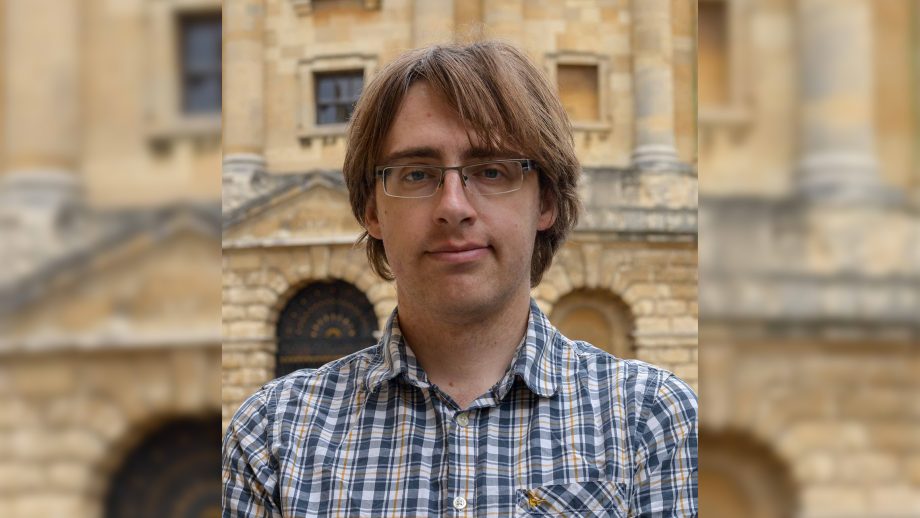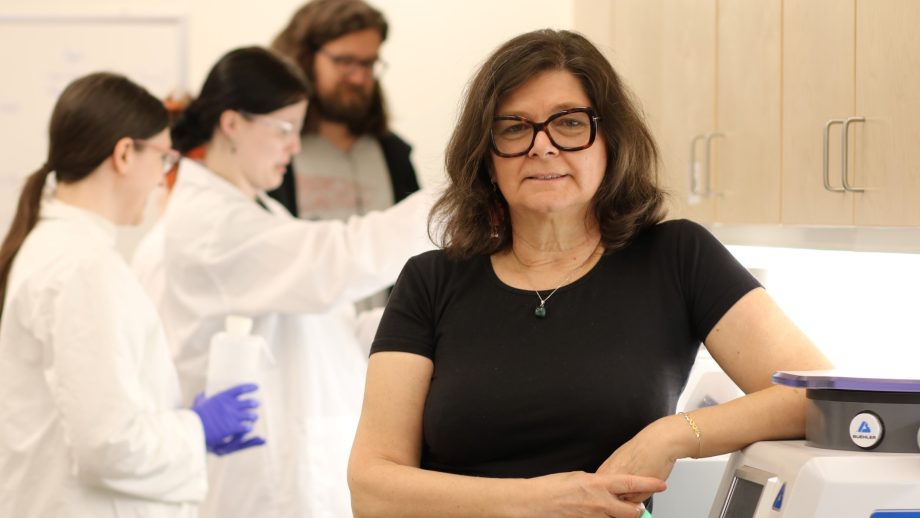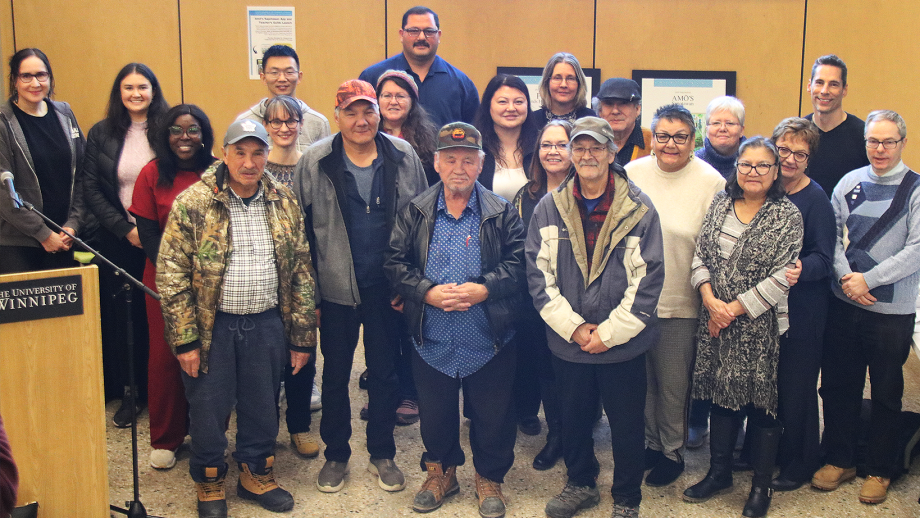The Social Science and Humanities Research Council of Canada has awarded the Thinking Through the Museum (TTTM) research network a 7-year, $2.5 million dollar Partnership Grant for the project Thinking Through the Museum: A Partnership Approach to Curating Difficult Knowledge in Public, which includes two University of Winnipeg faculty members as co-applicants.
The TTTM research network offers a really important opportunity to imagine how museums might strive toward forms of representation that are committed to decolonization and reconciliation.
Dr. Heather Milne
Dr. Angela Failler, Canada Research Chair in Culture and Public Memory and faculty member in the Department of Women’s and Gender Studies, led TTTM through its development phase which included the formation of Museum Queeries, a collaborative research cluster which Failler is co-leading along with UWinnipeg Department of English scholar Dr. Heather Milne and Concordia University art historian Dr. Michelle McGeough. Concordia University is the host institution for this phase of TTTM’s research, led by Principal Investigator Dr. Erica Lehrer.
Museum Queeries prioritizes Two-Spirit, lesbian, gay, bisexual, transgender, transsexual, and queer (2S+LGBTTQ) contributions and interventions into museums and museum studies in order to help change the face of museums, cultural heritage sites, and other public memory institutions and improve responsiveness to calls for social justice.
“Local and global calls for social justice on various fronts have resulted in a heightened moment of reckoning for museums and other public memory institutions,” said Failler. “I’m excited to be part of this project not only to help change the ‘face’ of museums in terms of whose realities are represented and how, but to help increase their capacity to grapple with difficult histories as they relate to present crises and the urgent needs of communities around them. It will be a learning process, and also an ideal context for student training in research.”
Supporting social justice movements
Pressure on museums to work for social justice in light of the Black Lives Matter, Rhodes Must Fall, and #MeToo movements, Canada’s Truth and Reconciliation Commission’s Calls to Action, and the COVID-19 and refugee crises, are among the motivations for TTTM’s work. Going beyond traditional academic approaches of arm’s length criticism, TTTM collaborates across sectors to creatively respond to colonial and other oppressive legacies.
The team will work within museum settings to co-produce exhibitions and design tools to challenge elite institutional knowledge systems, and beyond their walls to explore alternative heritage mobilization in festivals, grassroots archives, and site-based curating, where communities can set their own agendas.
“I’m thrilled to be part of this international team of researchers and museum professionals,” said Milne. “As many institutions, including museums, attempt to reflect on the importance of reconciliation and to meaningfully address a lack of diversity in their curatorial and managerial ranks, the TTTM research network offers a really important opportunity to imagine how museums might strive toward forms of representation that are committed to decolonization and reconciliation, and that take into account LGBTTQ and Two-Spirit histories and identities in nuanced and complex, rather than tokenizing ways.”
Amplifying under-represented perspectives
TTTM brings together international scholars, students, museum professionals, and community representatives from 20 museums, universities, and NGOs in Canada, the Netherlands, Poland, South Africa, and the USA. Individuals from each of these regions work in five thematic research clusters that amplify perspectives under-represented in the museum world (View the full list of team members and partner organizations). In addition to Museum Queeries, research clusters include Critical Race Museology, Unsettling and Indigenizing Museology, National Heritage and Traumatic Memory, and Children’s Museology.
“The University of Winnipeg is delighted to be part of this global partnership that meaningfully values a diversity of voices and contributors,” said Dr. Jino Distasio, Vice President Research and Innovation. “To have Angela Failler and Heather Milne included in the impressive list of world-class researchers reinforces their critical contribution to this project by building on their expertise and work that pushes for museums to become more representative institutions.”
Every year, the federal government invests in research excellence in the areas of health sciences, engineering, natural sciences, social sciences and humanities through its three granting agencies. Support from the Research Support Fund ensures that UWinnipeg’s federally funded research projects are conducted in world-class facilities with the best equipment and administrative support available.

